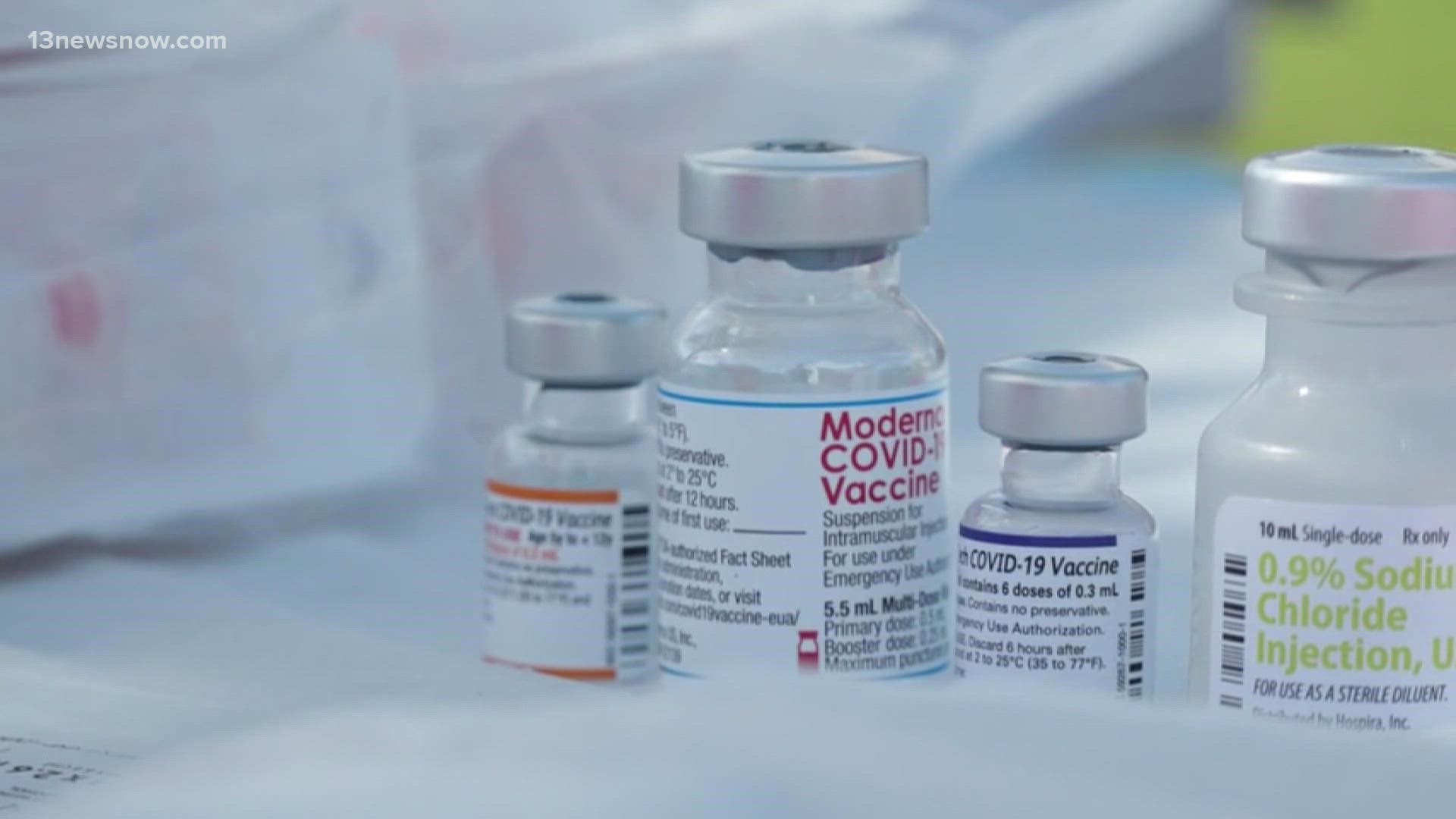NORFOLK, Va. — A new study from the University of Virginia sheds light on which COVID-19 vaccine may be built to last longer.
Researchers at UVA recently published findings from a study focusing on the antibody levels of hundreds of university employees.
“Had a big enough sample size, also able to compare and contrast antibody response between Pfizer and Moderna," Dr. Jeff Wilson said, assistant professor in the Department of Medicine and senior author of the study.
The researchers looked at the antibody response from 114 recipients of the Pfizer vaccine, and 114 recipients of the Moderna vaccine. Peak antibody levels were similar for both immediately after the second doses; however, changes were observed as early as one month after the administering of the second doses.
“We can use anti-body persistence as an indirect marker for how long vaccine effectiveness is," Wilson said.
After one month, Wilson said they found that the antibody levels of those receiving the Pfizer vaccine had dropped roughly 50%, a much higher rate compared to those receiving the Moderna vaccine.
The study goes on to say after six months, these recipients recorded lower antibody levels than Moderna recipients and previously hospitalized patients who had severe COVID-19.
The way the different vaccines are made plays a part. The makeup of the Moderna vaccines uses three times the mRNA dosage as Pfizer, which Dr. Wilson says could explain why it feels like it "packs a bigger punch" for some.
“Might have more side effects, but might be driving a longer immune response," Dr. Wilson said.
Even though antibody levels aren’t the only thing impacting vaccine immunity, he said it could mean some vaccines are better suited for certain populations.
"If you’re older, or have an immune system that is immuno-suppressed, it’s possible that because Moderna is a bigger vaccine, it could be a better choice because it could elicit more anti-bodies,” Dr. Wilson said.
All the findings were conducted before subjects had been administered a booster dose. While the efficacy of those doses is not part of the current study, it is a part of the information UVA researchers are looking at moving forward.

